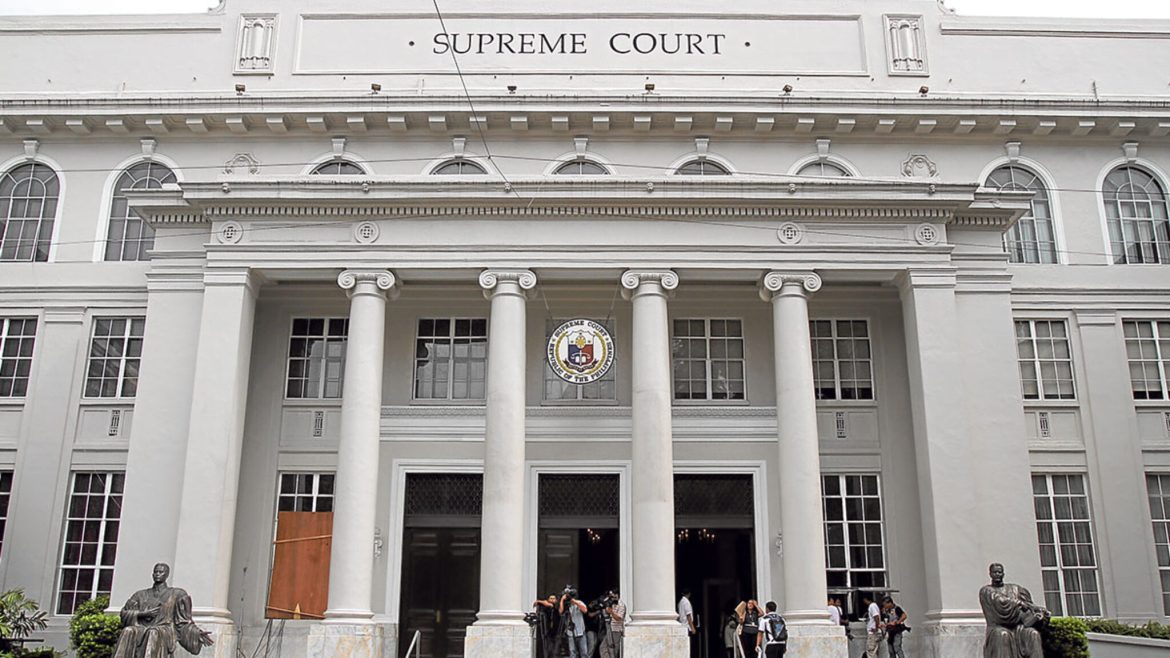MANILA, Philippines — John Barry Tayam, a 28-year-old high school teacher, has filed a petition with the Supreme Court for clarification on constitutional issues related to the impeachment trial of Vice President Sara Duterte. Tayam is questioning the constitutional mandate that the impeachment trial should proceed “forthwith.”
Tayam, who is also running for a seat as the House representative of the lone district of Las Piñas, brought the case to the nation’s highest court on Monday. The petition seeks a definitive interpretation of the term “forthwith,” and its bearing on the pace and conduct of the impeachment proceedings.
The impeachment case against Vice President Duterte involves several allegations, including accusations of financial misappropriation and unexplained wealth. The proceedings have garnered widespread attention, leading to debates about the constitutional processes guiding such high-profile cases.
The term “forthwith” is at the heart of Tayam’s petition. The word’s interpretation could significantly impact the timeline and nature of the impeachment trial. The Supreme Court’s decision on this matter could set a precedent for how impeachment trials are conducted in the Philippines.
Tayam’s legal move is part of a broader conversation about the transparency and fairness of the impeachment process in the country. Legal experts and political analysts have been closely monitoring the case, as it could influence future proceedings involving high-ranking officials.
The case against Vice President Duterte has been contentious from the beginning. The impeachment complaint was filed by opposition lawmakers who accused her of serious misconduct. The charges include mismanagement of confidential funds and abuse of discretionary powers. Proponents of the impeachment argue that such issues merit thorough investigation and accountability.
The impeachment process has already seen significant legal battles. Vice President Duterte herself has filed challenges against the impeachment proceedings, seeking to halt them. Her legal team argues that the charges are politically motivated and lack substantial evidence.
As the Supreme Court considers Tayam’s petition, there is growing anticipation about how it will interpret the term “forthwith.” Legal scholars suggest that the court’s interpretation could lead to a more uniform understanding of how swiftly impeachment trials should progress.
This petition is not the only legal challenge related to the impeachment. Several other petitions have been submitted seeking various clarifications and interventions in the process. These include requests for temporary restraining orders and other legal remedies.
Observers note that Tayam’s involvement in this legal action is significant. As a teacher and political aspirant, his engagement highlights the interest of ordinary citizens in constitutional matters. His petition underscores the role that individuals can play in shaping legal and political discourse.
The Supreme Court’s ruling on this matter is expected to influence the trajectory of the impeachment trial. It will also provide clarity on constitutional interpretations that may affect future cases. Legal experts stress the importance of understanding the constitutional language to ensure a fair and efficient trial process.
The legal community and the general public are keeping a close watch on developments in this case. The outcome of Tayam’s petition could have far-reaching implications for the Philippine legal system and political landscape.
As the court deliberates on the petition, discussions continue about the broader implications of the case. The focus remains on ensuring that constitutional processes are upheld and that political accountability is maintained.

